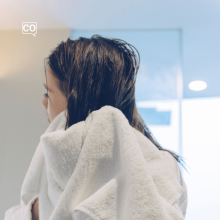Secarse (to dry oneself) - Subjuntivo futuro perfecto, subjuntivo (Future perfect subjunctive, subjunctive) - Spanish

Secarse - Conjugation of to dry oneself in Spanish: Conjugation table, examples and exercises in the future perfect subjunctive, subjunctive tense (Subjuntivo futuro perfecto, subjuntivo).
Subjuntivo futuro perfecto, subjuntivo (Future perfect subjunctive, subjunctive)
All conjugations and tenses: Secarse (to dry oneself) - conjugation and tenses - (Spanish)
Syllabus: Spanish lesson - Apariencia física (Physical appearance)
Conjugation of to dry oneself in Subjuntivo futuro perfecto
- yo me hubiere secado I will have dried myself
- tú te hubieres secado you will have dried yourself
- él/ella se hubiere secado he would have dried himself
- nosotros/nosotras nos hubiéremos secado we would have dried ourselves
- vosotros/vosotras os hubiereis secado You will have dried yourselves
- ellos/ellas se hubieren secado They will have dried themselves
Example phrases
- Espero que yo me hubiere secado antes de salir. I hope that I will have dried myself before going out.
- Es importante que tú te hubieres secado después de bañarte. It is important that you will have dried yourself after bathing.
- ¿Crees que él se hubiere secado luego de la lluvia? He would have dried himself after the rain
- Dudo que nosotros nos hubiéremos secado para cuando lleguen. I doubt that we would have dried ourselves by the time they arrive.
- Confío en que vosotros os hubiereis secado después de la piscina. I trust you would have dried yourselves after the pool.
- Es probable que ellos se hubieren secado rápidamente. They would probably have dried themselves quickly.
Exercise: Conjugate the verbs - secarse (to dry oneself)
Instruction: Choose the correct word, read the sentence out loud and translate.
Show answers Show translationSecarse (Subjuntivo futuro perfecto, subjuntivo)
1. Es probable que ellos ... rápidamente.
2. Confío en que vosotros ... después de la piscina.
3. Dudo que nosotros ... para cuando lleguen.
4. Espero que yo ... antes de salir.
5. ¿Crees que él ... luego de la lluvia?
6. Es importante que tú ... después de bañarte.